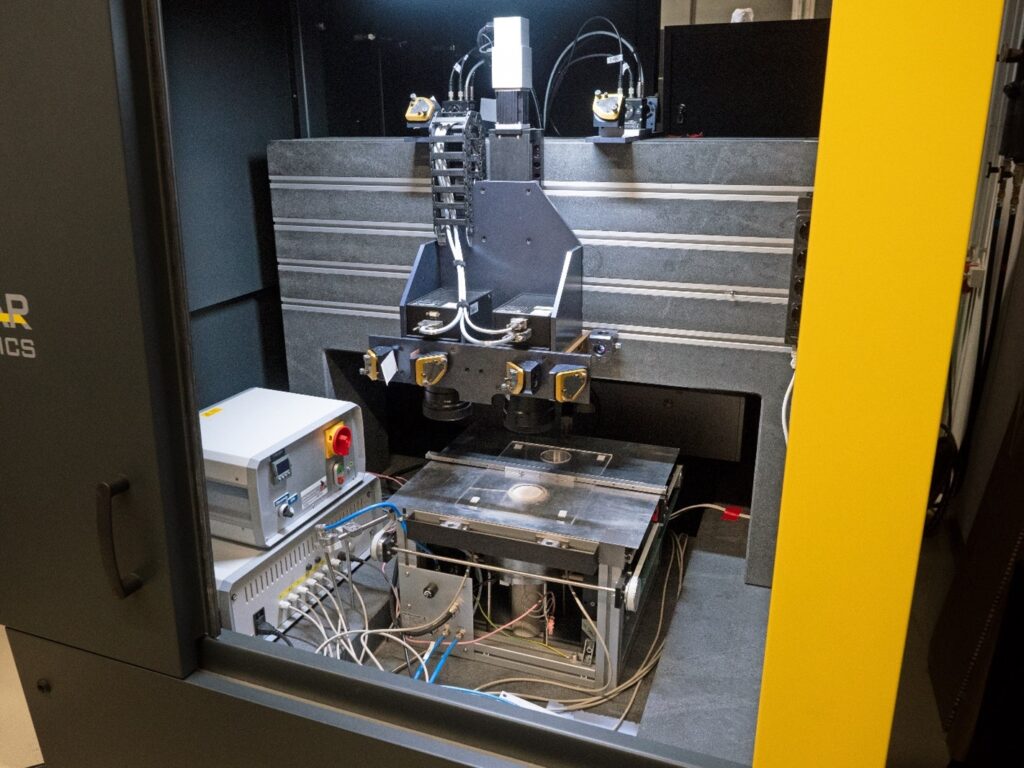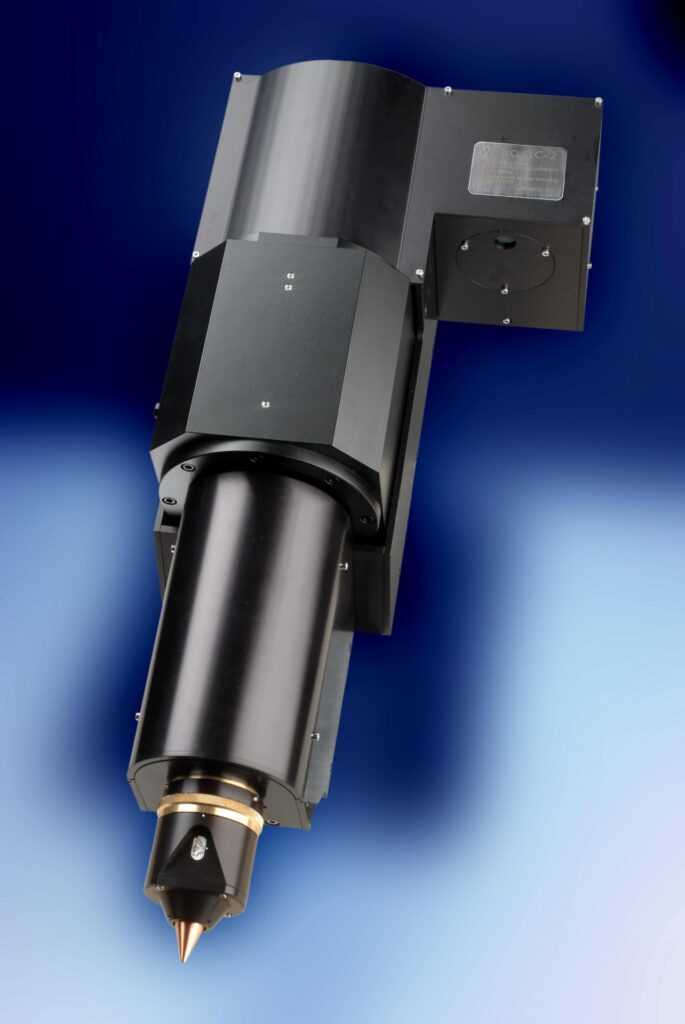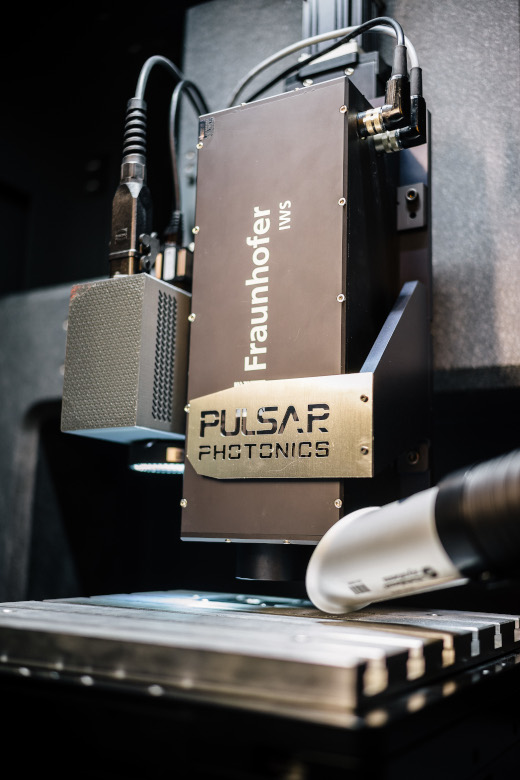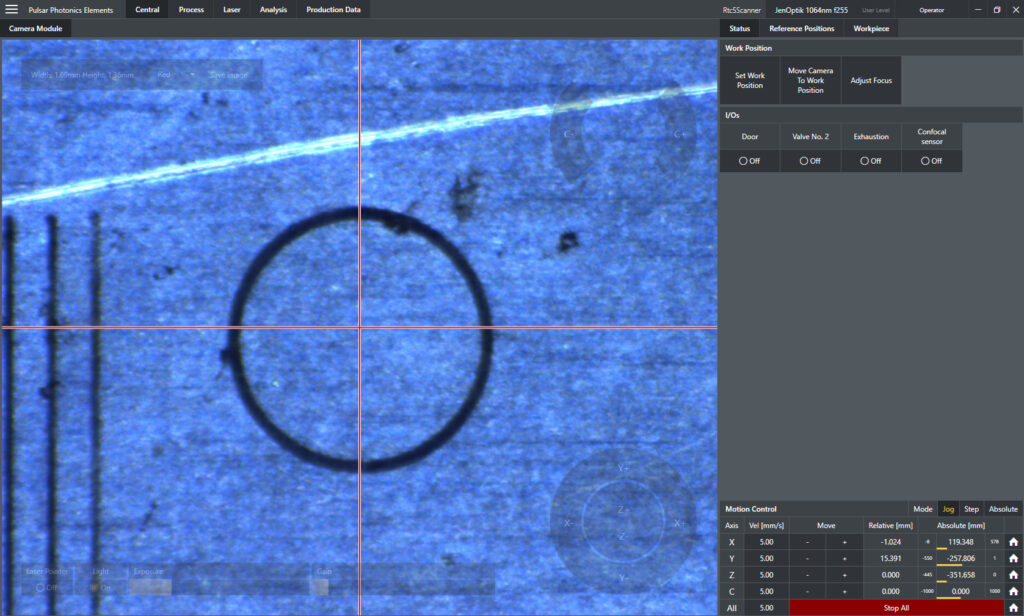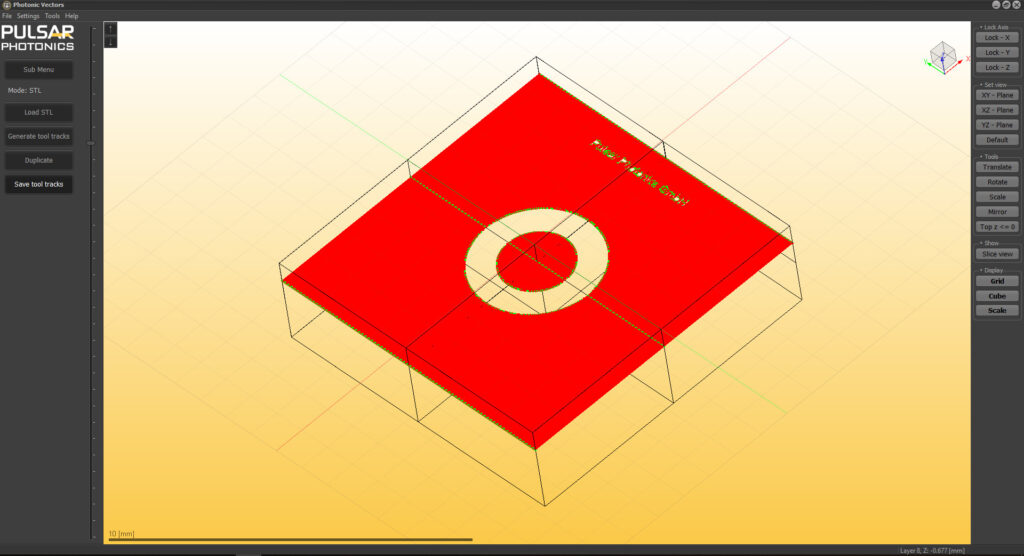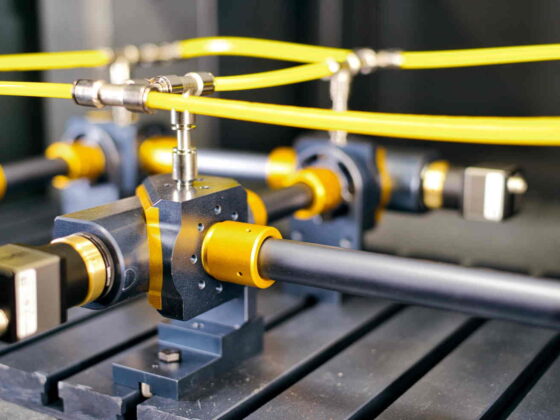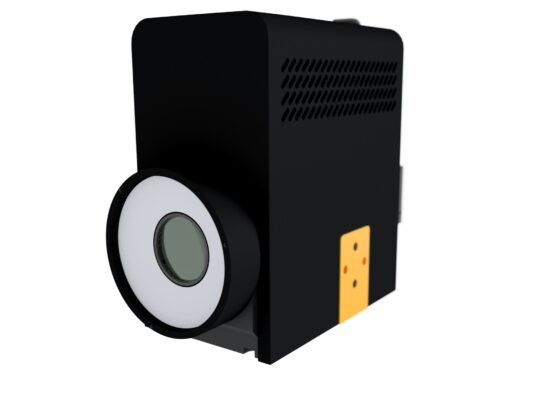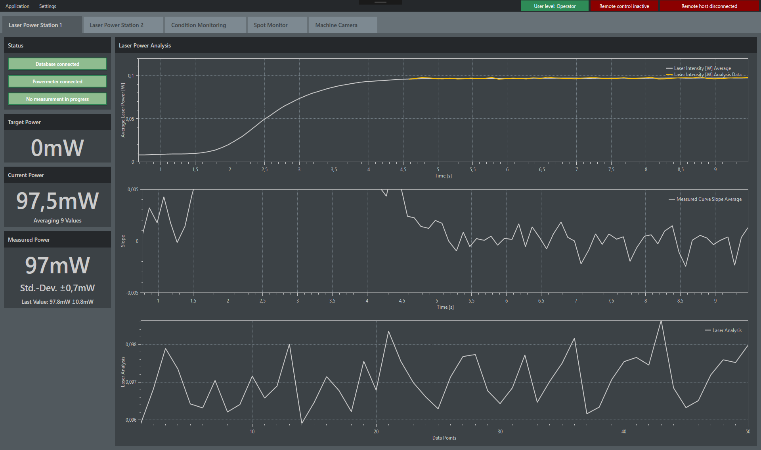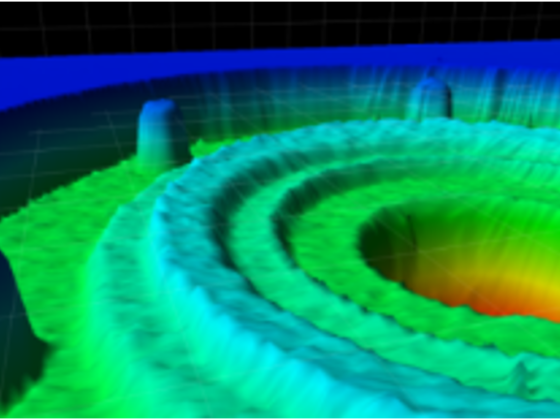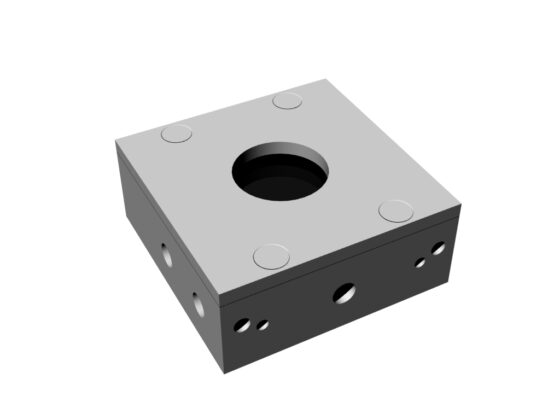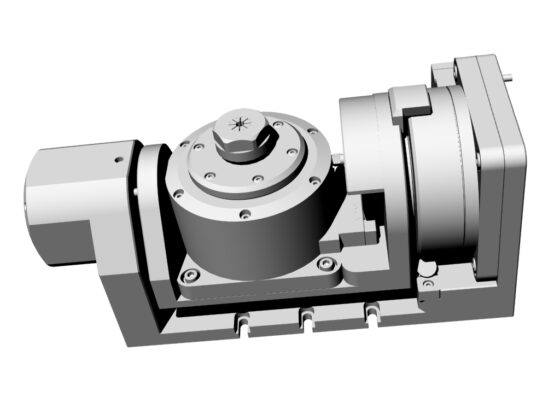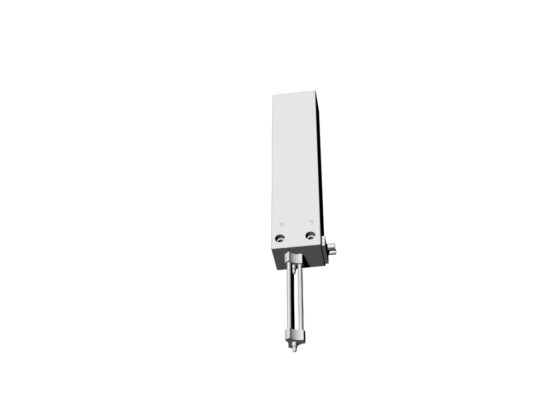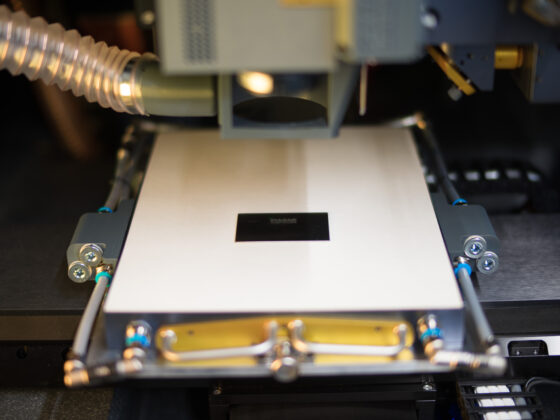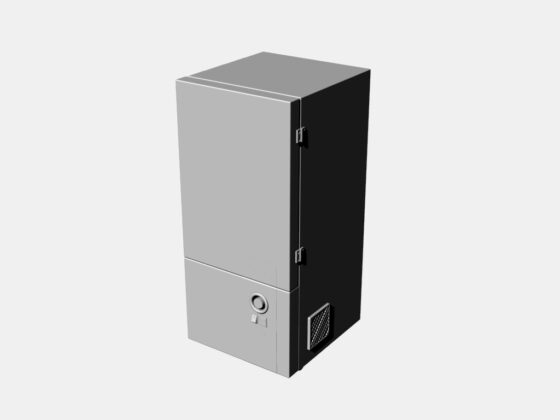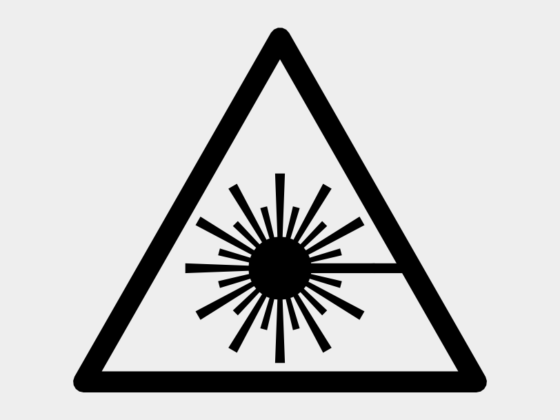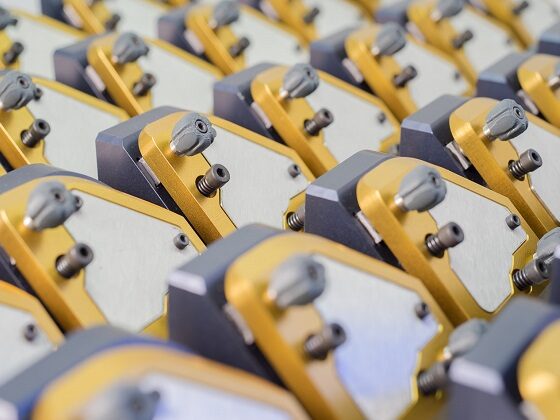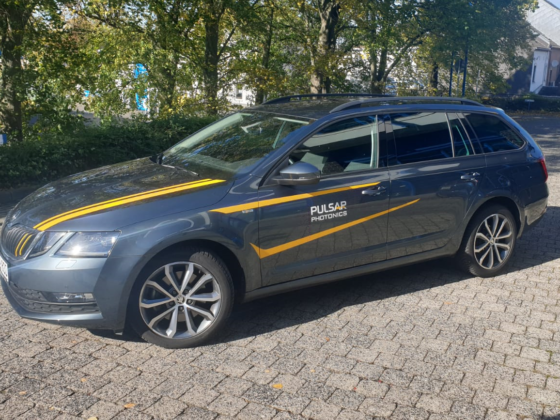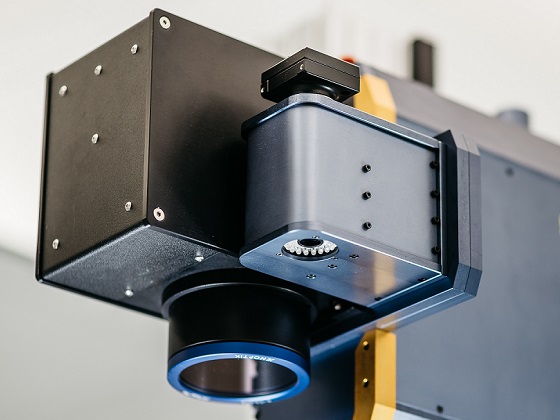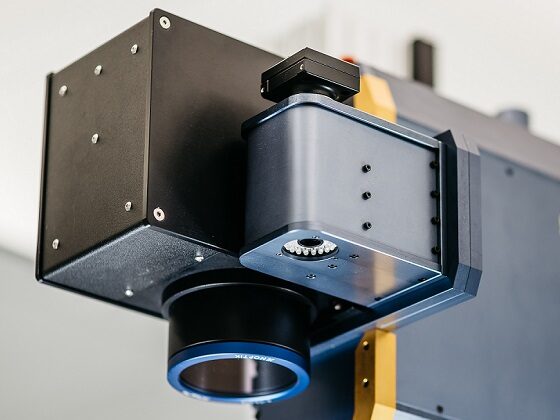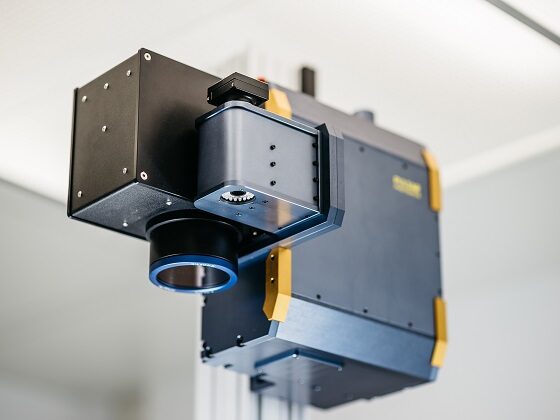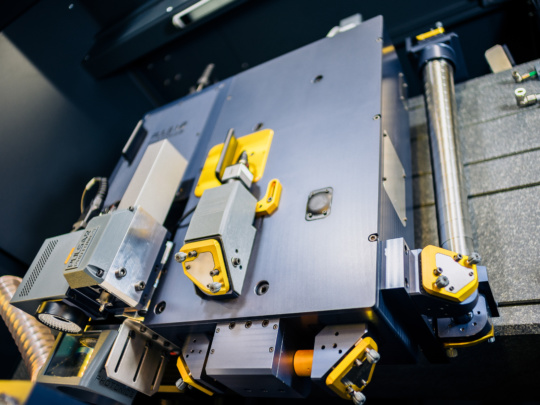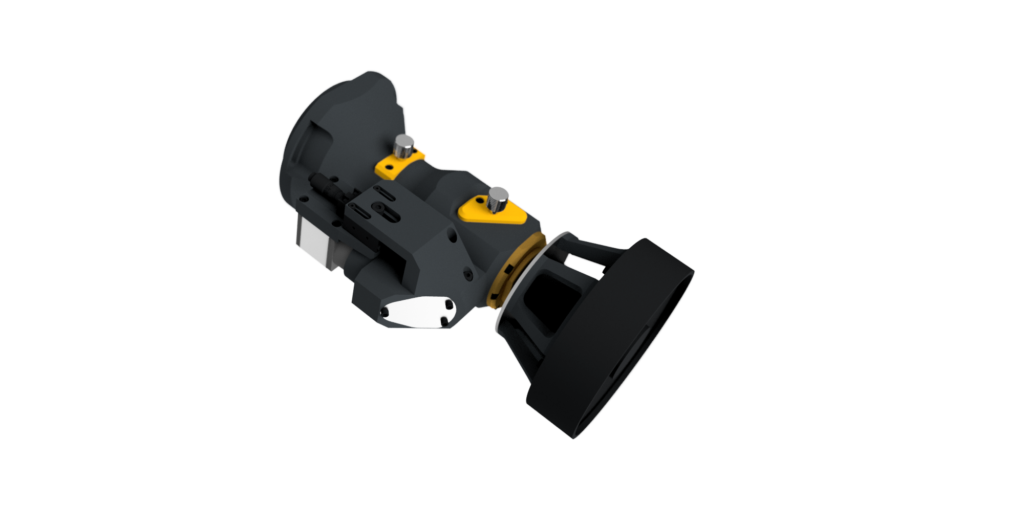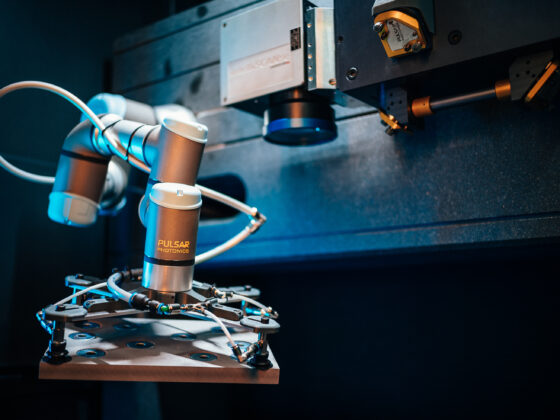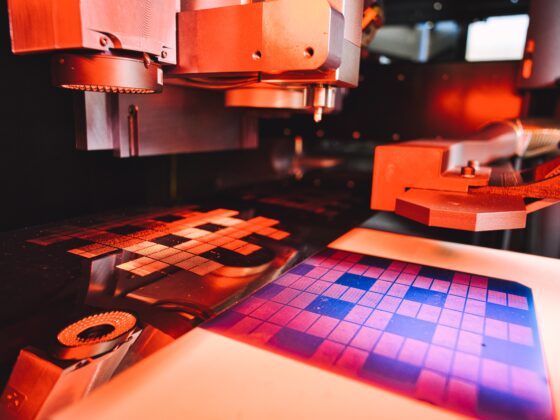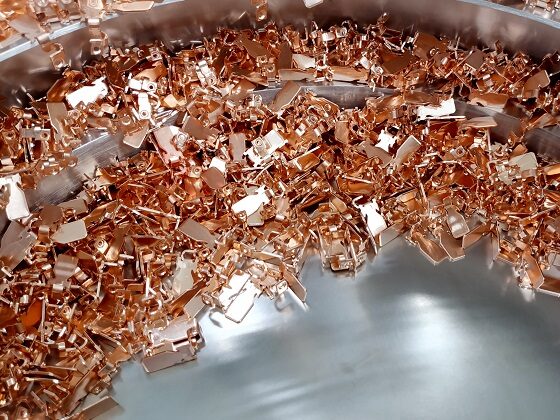– Innovative solution developed as part of the LASERPORE research project in collaboration with Ernst Abbe University, Leipzig University and ITG Wismar
– Funding by the German Federal Ministry for Economic Affairs and Energy (BMWi)
– Integrated high-temperature oven shortens laser processing to just a few minutes
Herzogenrath, 8 March 2022: Pulsar Photonics, an innovative high-tech company in the field of laser technology, is developing a machine- and software-based solution based on the RDX1000 laser machine for the production of porous glass moulds for applications as filter element. The machine solution was developed as part of the LASERPORE research project in close cooperation with the Ernst Abbe University of Applied Sciences (EAH) in Jena, the University of Leipzig and ITG Wismar and was funded by the German Federal Ministry for Economic Affairs and Energy (BMWi). This innovation makes it possible to produce sample components as well as in component series and to shorten the laser processing to a few minutes.
– Maximum component volume: D 50mm x H 150mm
– Minimum layer thickness: ≤ 50µm
– Build-up rates per layer: 10mm³/min to >100mm³/min
Pulsar Photonics develops the Photonics Elementes (PE) machine software for laser micromachining applications. PE has specialised software functions for layer-by-layer process control with scanner and axis systems and uses a library of integrated laser beam sources. Laser jobs can be easily parameterised using a solid model or 2D geometry. The sequence and state control of the process is stored in a software recipe and can thus further reduce the complexity depending on the user level.
The further development of the process chamber enables additive manufacturing under defined environmental conditions. A high-temperature furnace was developed for this purpose, which prevents premature segregation and thermally induced stresses in the glass mould. Slow cooling, which is achieved by preheating, allows the components to be released from the building platform without causing damage.
At the push of a button, glass moulds can be produced with appropriately defined process parameters. These can be produced with different densities and cavities in the millimetre to micrometre range, depending on the material used, the process conditions and the setting parameters. A downstream VYCOR® process enables further processing of the components, which was further developed by the University of Leipzig especially for the SLS process. The porous glass components generated can be used, for example, in the filter systems of ITG Wismar.
Dr. Joachim Ryll, Founder and Managing Director at Pulsar Photonics GmbH: “The entire manufacturing process is based on a layer-by-layer construction of the glass moulds and works similarly to 3D printing of metal components. This allows several components to be built up simultaneously in one batch and complex internal structures and surfaces to be created. What makes our solution unique is a high-temperature oven integrated into the laser machine, which enables stress-free 3D printing of porous glass moulds.”
Pulsar Photonics
Pulsar Photonics GmbH is an innovative high-tech company in the field of laser technology. Its range of services includes the development, production and distribution of laser machines for material processing with short and ultra-short pulse lasers. A second core competence of the company is the integration of tooling and measuring systems for material processing, adapted to the specific requirements of the application. Besides its expertise in system development, Pulsar Photonics is also a competent partner for single-part and series production with (ultra-)short pulse lasers. Its core processes focus on structuring, drilling and precision cutting. Founded in 2013, Pulsar Photonics GmbH is one of the fastest growing companies in Europe, according to the Financial Times and Statista. Pulsar Photonics has been part of the Schunk Group since 2021.
Contact
Pulsar Photonics GmbH
Dr. Stephan Eifel
presse@pulsar-photonics.de
www.pulsar-photonics.de
